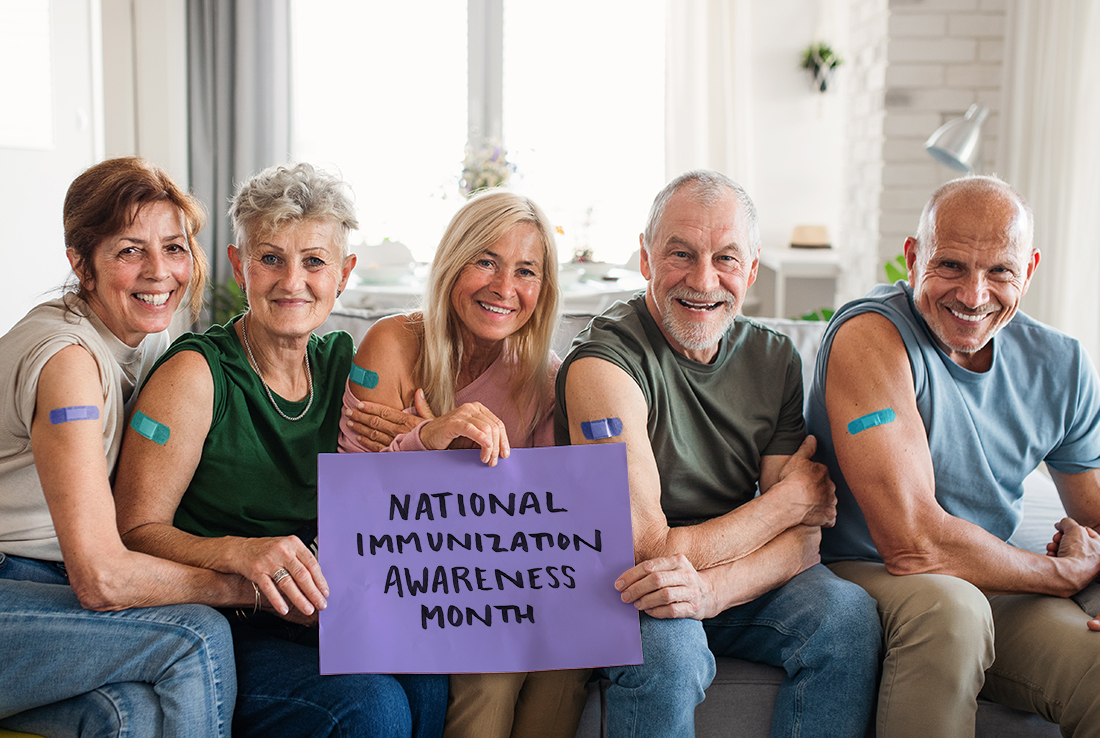Why Seniors Should Check Their Immunization Status

With August designated as National Immunization Awareness Month, it’s a good time to check that you are up to date on all your vaccines.
Immunization, also called vaccination, stimulates your immune system to recognize viruses and bacteria that can cause infection and disease. If you’re exposed to the disease again, your immunity will ward it off quickly and you either won’t get sick at all or you’ll have a milder illness.
What is National Immunization Awareness Month?
According to the CDC, this month was designated to help educate medical professionals on the latest information about immunology and to serve as a reminder for people of all ages to get needed boosters or vaccines they don’t yet have. August was deemed the best month for National Immunization Awareness because it’s just before the start of the traditional school year and comes shortly before the start of flu season, when influenza shots are recommended for many people, including seniors.
Which Immunizations are Recommended for Seniors?
In addition to flu shots, which can minimize your symptoms from catching the influenza virus, seniors should be up to date on the following vaccines:
- Pneumococcal vaccine. This immunization prevents pneumococcal infections that cause respiratory illnesses like pneumonia and meningitis.
- Shingles vaccine. Sometimes called Zoster, this prevents shingles (also called Herpes zoster), a painful rash caused by the same virus that is responsible for chicken pox; it can lie dormant in your body and re-emerge in your senior years as shingles.
- Tdap (tetanus, diphtheria, and whooping cough) or Td (tetanus and diphtheria) – Adults should get one of these boosters at least every 10 years to protect themselves and prevent spread.
- COVID-19. Even if you’ve had an initial COVID-19 vaccine, there are boosters available. Talk to your doctor to learn more.
Why Should Seniors Get Immunizations?
As humans age, our immune systems become weaker. Though you might eat right, exercise and get enough sleep, your immunity at age 65 may still be lower than that of a younger person. Immunizations help prime the immune system to respond quickly to an invading virus or bacteria so it doesn’t have time to develop into a full-fledged version of the disease. Even healthy seniors can use the disease-fighting power of being fully vaccinated.
It’s also important for seniors who have some of the chronic illnesses that are more common after age 65, such as diabetes and heart disease, to be protected against diseases that can take a greater toll on the body.
Do You Need to Update Your Immunizations?
The best way to know whether your shots are current is to consult with your medical professional. At the Center for Family Medicine, our doctors can review your medical records and help you determine if you’re due for a booster immunization and which shots are right for you. Make an appointment this August to recognize National Immunization Awareness Month and make sure you’re protected against disease.


